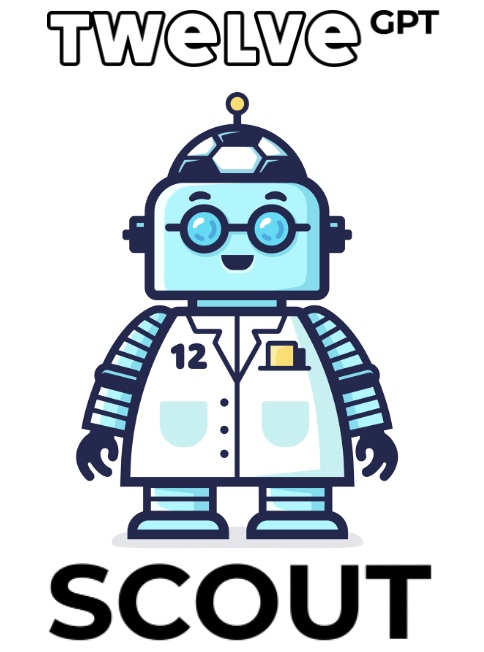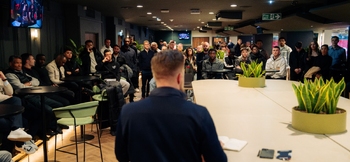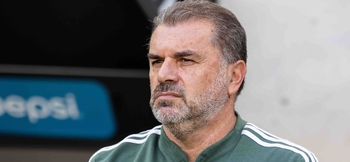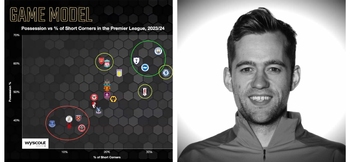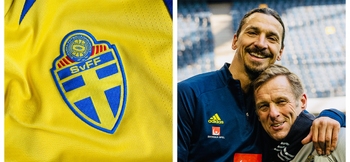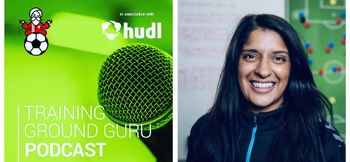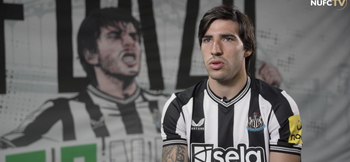Danny Cipriani: Rugby's free spirit
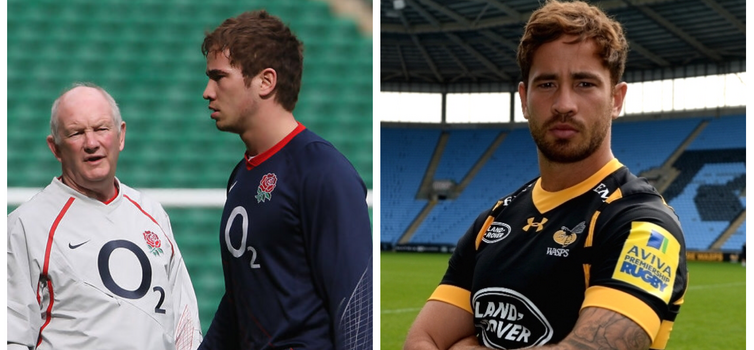
Cipriani found a kindred spirit in Brian Ashton (left)
Written by Ben Dirs — April 28, 2018
PEOPLE have been telling Danny Cipriani to play the game his whole career.
By which they mean, play it the same as everyone else. Obey all orders, don’t speak out, stick to the plan, be more like Jonny Wilkinson. Why do you always want to be different? Life would be easier if you just did it our way.
On this murky spring evening, Cipriani could be halfway back to Leamington Spa, instead of chatting to me in a thronging restaurant in Soho. But he had the grace to fit me in, around a jab for a gammy thumb. And a chat it was, rather than yet another one-way interview, which us journalists are used to.
Cipriani asks questions and seems genuinely curious, which isn’t normally how these things work. This isn’t the swaggerer I’ve read about, the feckless kid who threw it all away.
This is a thoughtful man, well on the way to making sense of it all. I reckon Cipriani sleeps well when his head hits the pillow.
“When I was 18,” says Cipriani, “a very senior professional, who played for England many times, said to me, ‘Danny, you’ve just got to play the game sometimes’.
“And I thought, ‘So I’ve got to be fake?’ If I feel something, I feel something. Maybe I could have toed the line a little bit more, said the right things here and there. But I don’t regret anything, because I can’t regret anything. I’ve always been true to myself, and that makes things easier.”
England’s last two games of the 2008 Six Nations created a rigid, dual narrative for the rest of Cipriani’s career, from which fans and critics have refused to veer.

Brian Ashton will be hosting Cohesive Coaching in Manchester on June 20. Find out more HERE.
For some, Cipriani is a ‘celebrity’ rugby player, forever that kid photographed leaving a nightclub, three days before his intended first start against Scotland. For others, he is the non-conformist that English rugby needed but was unable – or unwilling – to accommodate, that kid who bossed Ireland and said ‘fuck’ in his post-match interview, having been picked ahead of Wilkinson.
“Being dropped for that Scotland match has been at the forefront of people’s minds ever since,” says Cipriani, now 30, who maintains he wasn’t drinking that fateful night and was merely handing over some tickets to some mates.
The person who did the dropping was Brian Ashton, England’s embattled head coach and the man who understood Cipriani better than most. Scotland beat England 15-9, Cipriani was recalled – suggesting that Ashton had been loath to punish him in the first place – and before the Ireland game, he had Cipriani take an attack session in training. Whatever Cipriani suggested, it worked.
“If you stick to a plan and it’s not working, you have to think about what to do next. But you should be having those conversations all the time, not just when you’re losing. There are a lot of egos in sport, but I always want to learn.
“Brian is a free thinker, open to ideas. He’ll never tell you what to do, it’s up to you to make things work. There are times when things seem impossible, but Brian will let you try anything, and eventually you’ll find a way.
"You see players, in all sports, who look like they’re playing to a plan and it doesn’t seem natural.
"But when you’re out in the middle and the heat is on, you can’t really be thinking, ‘What did the coach tell me to do?’ By that time, the moment is gone. You’ve got to go with what you’re seeing and feeling.”
Ashton admits he never really felt accepted by English rugby’s establishment, and it is no surprise that the coach whose dad was a miner should dovetail so neatly with the player whose mum drove a cab. Ashton and Cipriani are rugby outliers, and outliers are too often written off as suspicious characters.
“I was an only child, so spent a lot of time playing on my own,” says Cipriani, who grew up on a council estate in West London. “I had to be inventive, find different ways of doing things to keep having fun. Maybe that’s where my freedom of expression came from. Rugby is very structured – ‘stand there, stand here, do that’ – but I love playing to the space and working out defences.
“It’s easier to work to a plan, because you can blame somebody else. I’d rather take responsibility, because the rewards are much greater when it comes off.”
There are coaches who relish the task of discovering how an unusual talent might be utilised. They view it as a child might view a complicated toy – how does it work, what can it do, how can it fit in with the rest of my play things?
There might be some lateral thinking involved, but the rewards can be longer-lasting. Then there are coaches who prefer their talent to be instantly comprehensible. By successive England coaches since Ashton, Cipriani has been viewed as one of those complicated toys that can too easily go wrong.
Cipriani, once earmarked as England’s great, creative fly-half hope – a player whose timing, sense of space and searing pace seemed to make up for any perceived defensive frailties – hasn’t started a Test for 10 years, didn’t play for England at all between 2008 and 2014, and last played for them almost three years ago.
“I’ve never been fully accepted in rugby, but that’s cool. Some of that has been down to my actions, but why do we insist on labelling people as different?
“When Shaun Edwards was at Wasps, he’d say we were like an orphanage, with players from everywhere. All those different characters were encouraged to be themselves. We were a team on the field, but you could be yourself off it. Everyone loved the weirdos in the squad, it was a nice place to be.
“Shaun got that you can’t expect everyone to be the same, and a good coach accommodates those kinds of players. Brian Ashton and Shaun Edwards completely spoiled me from a young age, coaching doesn’t get any better.”
Speaking one’s mind can be disastrous for work-place harmony and career development, whatever business you’re in. And Cipriani has found that not all coaches are as open to the exchange of ideas as Ashton and Edwards.
“Having conversations in sport is about learning new things and finding a way to win,” says Cipriani, flourishing at Wasps after stints in Melbourne and Sale. “It’s better to have a conversation than just blindly do things.
“I’ll do it in a constructive manner, but it’s probably affected people’s perceptions of me. Some coaches feel that players shouldn’t be asking questions, it gets their backs up: ‘Who does he think he is?’ Some players want to be told, but for other players it’s tough when it’s a one-way conversation.”
Cipriani’s portrayal as a man bent on self-improvement is greatly at odds with the cartoon version, as doodled by sections of the media, which decrees that because he dated a couple of famous women and appeared on the cover of some magazines, he must therefore have pissed away his God-given talent.
A recent newspaper article, which accused Cipriani of arrogance and claimed he led “a celebrity lifestyle of continuous self-gratification”, was panned by coaches, fellow pros and writers who regularly watched Cipriani play. The consensus was that Cipriani practised his trade more assiduously than most and that his ‘failure’ to win more than 14 England caps was down to bad luck.
Cipriani is only in London on the day I meet him because he has travelled down for extra physio, paid for from his own pocket.

Cipriani with his mum, Anne
He has also worked independently with sprint coach Margot Wells, as well as mind coach Steve Black, who turned him on to the benefits of reading and writing. Cipriani also meditates, and fasts when he is injured, which is said to speed his recovery.
If he’s had a bit of fun with some beautiful women along the way, then good luck to him.
“I’d like to be remembered as resilient – no matter what went on, I’d always turn up and do well – and as someone who made other players perform better, by giving them more time and space. But by people who don’t really follow rugby, I’ll probably be remembered as somebody who chucked it all away.
“I guess I’m misunderstood. When I was young, a character was developed by the media, and I started acting as that character, playing a caricature. It all happened so quick. I became a pro, played some good rugby, everyone was writing about me, and suddenly I was dating someone that people knew. I was only 20, just getting on with life, and I couldn’t help who I fell in love with.
“What was going on? How do you adjust to it? I went through depression. I had paparazzi outside my house every day. I couldn’t go anywhere. I’d walk past people in the street and think, ‘What are they saying about me?’ The rugby lot didn’t really like it either, which made me even more of an outsider.”
Asked if he has felt persecuted at times, Cipriani replies “a little bit”, before bemoaning the lack of compassion shown towards the Australian cricketers caught up in the recent ball-tampering scandal, as well as the media-bashing of Raheem Sterling, “a special talent who should be savoured and respected”.
Cipriani’s concern speaks of an empathetic man with a keen sense of perspective, who sees a world beyond the narrow confines of sport.
“Rugby’s great, but it’s such a small part of reality,” says Cipriani, who says he would like to mentor young footballers when he hangs up his boots. “You can tell by the way I play that I do everything I can to win, but there are more important things than me having a good game or playing for England.
“I’ve been reading a lot of books about the mind, writing about my experiences. Everyone goes through moments of sadness, things to deal with from when they were growing up, parent issues, difficult times, but it’s helped me make sense of things. I’m much more compassionate and understanding.
“When you’re a young sportsman, and you’re in the moment, you feel like the cycle will go on forever. It doesn’t, and there’s so much more you can be doing.
“I wish I’d spent more time away from the game – learning, preparing myself to be self-sufficient – instead of waiting until I was in my mid-20s. You’ve got to understand what’s relevant and stay in touch with the real world.”
This season is likely to be Cipriani’s last in the Premiership, before he heads abroad – probably to France or Japan – for the final few chapters of his career. With Wasps currently in the play-off places, an appearance in the Premiership Final at Twickenham is not out of the question and would be a fitting farewell.
Cipriani knows that in seeking employment elsewhere, he will almost certainly be bringing the curtain down on his international career. And the biggest irony – and sadness – will be that the most gifted fly-half of his generation will leave behind an England team once again stricken by a chronic lack of creativity.
"I’ve not even scratched the surface of what I could do for England. I’m a far better player now, read the game a lot better, have the right tools for each scenario.
“But I can’t make my decisions based on England. If it happens, amazing. If it doesn’t, it doesn’t. I can’t be bitter about it, it would just eat away at me. I’m still the same guy, whether I play for England again or not.”
It’s gone 9pm when we say goodbye and Cipriani hops in a cab bound for Marylebone Station. And I’m left wondering how a man labelled a celebrity outsider can seem so normal, and what game everyone else has been playing.




